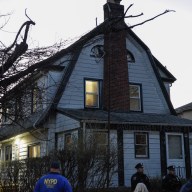By Kenneth Kowald
This past January, TimesLedger Newspapers reported that a 21-year-old Richmond Hill resident was assaulted as he walked with a friend in Jackson Heights. Three men attacked Jasmir Singh, a Sikh. Among other injuries, he lost sight in one eye.
I am not a collector, but a piece of paper I have kept since the weeks after Sept. 11, 2001, is pertinent to this assault and our observance of Independence Day, when the signers of that noble document proclaimed all men are created equal. The Declaration of Independence was and still is a remarkable document.
As I entered the subway station at Union Turnpike about two weeks following Sept. 11, I was handed a brochure with a red, white and blue ribbon attached to it. “Sikh Americans” was written on the cover, as was “United We Stand.” And there was this statement attributed to the tenth and last guru of the Sikhs: “Recognize ye all the human race as one.”
The Sikhs were passing out this literature because back then, anyone wearing a turban, as Sikhs do, was considered to be a terrorist and there had been assaults and even murders committed against these innocent people.
In the text of the brochure were these words: “The Sikh faith teaches us the humanitarian principles of freedom, equality and justice — the same principles this great democracy is founded on.” And these words: “The universal nature of the Sikh way of life reaches out to people of all faiths and cultural backgrounds, encouraging us to see beyond our differences and to work together for world peace and harmony.”
Sadly, as we learned from the attack on Singh, those words need to be repeated again. And there are other words we might want to remember on this Independence Day, lest we forget how important it is to protect freedom for all.
Dr. Martin Luther King Jr. wrote, “He who passively accepts evil is as much involved in it as he who helps to perpetrate it.”
Supreme Court nominee Sonia Sotomayor said this in 2003: “History will judge our democracy by how we balance the security threat to us with our allegiance to constitutional principles and notions of ordered liberty.”
In 1944, Supreme Court Justice Felix Frankfurter, a Jew, wrote the majority opinion in a case the court dismissed against a naturalized German native who was so outspoken in his admiration of Hitler and the Nazis that the government tried to strip him of his citizenship.
Frankfurter wrote: “One of the prerogatives of American citizenship is the right to criticize public men and measures — and that means not only informed and responsible criticism but the freedom to speak foolishly and without moderation.” It is an American right to express “silly or even sinister-sounding views,” he wrote.
Fifteen years earlier, Oliver Wendell Holmes Jr., writing for a unanimous Supreme Court, touched on the limits of such freedom when he wrote concerning anti-war protests: “The most stringent protection of free speech would not protect a man falsely shouting fire in a theater and caused a panic ….”
In a Supreme Court case last spring, Justice Anthony Kennedy wrote: “The laws and Constitution are designed to survive, and remain in force, in extraordinary times. Liberty and security can be reconciled; and in our system they are reconciled within the framework of the law.”
It is good to be reminded of what former President James Madison wrote in the Federalist Papers in support of our proposed Constitution: “The accumulation of all powers, legislative, executive, and judiciary, in the same hands, whether of one, a few, or many, and whether hereditary, self appointed, or elective, may justly be pronounced the very definition of tyranny.”
Earlier this year, retired Supreme Court Justice Sandra Day O’Connor started a Web site, ourcourts.org, for middle-school children and their teachers to help improve civics education, something that was important when I was a student. She said polls show one-third of Americans cannot name the three branches of government, nor can they say what they do. What a commentary on our educational system!
We do not always get it right in our democracy, but as that son of an American mother, Winston Churchill, noted, “Americans can always be counted on to do the right thing … after they have exhausted all other possibilities.”
Abraham Lincoln said the United States is “the last best hope of mankind.” May it always be so.
Some things to think about as we celebrate a safe and happy Fourth of July.































